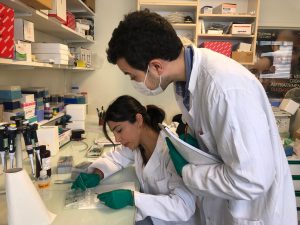Scientific integrity guides the practical application of the values and ethical principles that are relevant to research. The rules therefore need to reflect the diversity of practices, and they are constantly adapting to changes with research methods and tools.
For example, the development of new practices in data-sharing and access to publications raises questions about the requirements to be met if data is to be reused with integrity. Similarly, open access to scientific publications raises questions about scientists’ new responsibilities in terms of how they describe their results and communicate with the media.
Inserm's Research Integrity Office (RIO)
Inserm’s RIO was set up in 1999.
Its main missions are to :
- Advise on, inform about and train in the rules of integrity; suggest measures to promote good practices and participate in relevant national and international initiatives in the field of scientific integrity,
- Collect and process reports relating to scientific integrity involving Inserm staff or other people working in its laboratories.
All the RIO’s actions are carried out by way of a balanced exploration of the information collected, in strict compliance with the principles of confidentiality and on the assumption of the good faith of the individuals involved.
All of the delegation’s actions are carried out in a contradictory framework, strictly respecting the principles of confidentiality and presumption of good faith.
The procedures implemented by the delegation for collecting and processing reports relating to scientific integrity are presented in the Inserm Guide of Procedures for Collecting and Processing Reports Relating to Scientific Integrity (in French).
Ghislaine Filliatreau, Research Integrity Officer
News

Un guide proposant une approche qualité pour les données de recherche
Et si on évaluait les journaux scientifiques autrement ?

Impacts de l’IA pour les jeunes scientifiques en début de carrière
Un plaidoyer pour une médecine toujours plus transparente et plus rigoureuse
How can I contact the RIO ?
Your exchanges with us are confidential. If you would like to get in touch, please send an e-mail to the Research Integrity Office at contact.dis@inserm.fr.